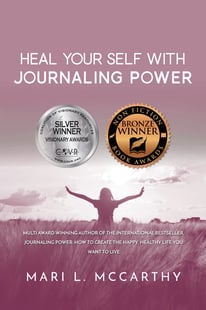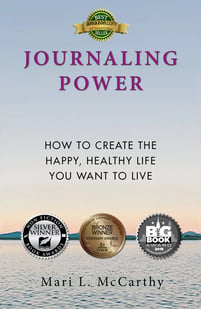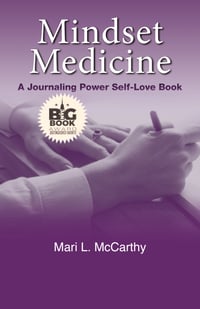Profound, reflective writing that allows us to express our emotions is more than just a writing exercise. It can help us heal and go through very trying times, and teach us how to be more resilient. Journaling is among the most cathartic of hobbies. It humanizes our experiences and gives us the strength to take on another day.
Keeping a resilience diary or journal can help us come to terms with adversity and improve ourselves. There has been decades’ worth of research on how journaling can be a therapeutic tool. A daily log can be a great practice to build up emotional strength and resilience and become the best version of oneself.
Writing is an easy and versatile way to express ourselves, and here are some reasons why this habit can help us develop resilience and manage our emotions.
Writing helps us process grief
We need to grieve before we can grow. A lot of us wish to move on to becoming the strong, self-sufficient version of ourselves without having processed our grief first. Like any other emotion, our grief must also be felt and experienced to the truest extent for us to come to terms with it.
A resilience diary offers a safe and private space to let out our grief and express our darkest thoughts. We can talk about what bothers us over and over again without any fear of being told we are repetitive. We can pour our hearts out on the paper without any fear of judgement. We can also write about the things we feel too ashamed to express in public.
This way, journaling can help us process and acknowledge our grief. This is the first step towards overcoming it. Over time, this converts to emotional strength and self-improvement.
It lets us study our experiences
Most of us tend to fixate on our problems, making us unable to move forward to come up with solutions to deal with them. This catastrophizes the situation, making us feel like we are stuck in an endless loop.
Journaling helps us in writing down our thoughts, which then allows us to visualize them instead of just thinking about them. It lets us see the patterns in our thinking, which lets us study our experiences. This process of looking back at traumatic or painful situations and learning from them is a great way to heal and move forward. In this way, instead of just thinking about how difficult the situation is, we learn how to study the situation and take away key aspects from it.
A resilience journal is one of the best ways to find the meaning behind our experiences. It is from this practice that we can start challenging the self-sabotaging beliefs and embark on the journey of healing.
We learn to explore new perspectives
At some point, we always feel that there is a gap between what we show ourselves as, and how we would like to show ourselves. Essentially, this involves taking two different perspectives to view our lives and how we can move ahead.
Consider the journal to be a stage where we can try out different roles and ideas. This will help us bridge that gap between thinking and being. Writing can be used as a tool to explore different perspectives that can be utilized to handle challenges in life. Whenever we take on additional ways of thinking, we open our minds to become more flexible and adopt a different perspective that can make all the difference.
This is because changing our way of thinking has a snowball effect. Once we change that, our feelings, emotions, behavior, outlook and overall mindset start to change. A resilience diary guides us to the path of self-sufficiency and emotional strength in this way.
One of the best examples to prove this is something we do very commonly. Whenever we are inconvenienced by anything, we are attuned to imagining the worst-case scenario. While it is important to be practical and consider all our chances, often what we think of as the worst-case scenario does not come true. However, we keep worrying about something that is never going to happen.
Instead of this, we can try doing the exact opposite: consider the best-case scenario. Taking time out to write about the best outcome of the situation and how we will feel as a result of that outcome is something that can push us greatly towards achieving a better outcome. Sure, we may not get the best-case scenario to come true either, but at least we will end up with something not too bad.
Writing creates a new narrative
Reconstructing the narrative of our pain is a major step towards self-actualization. When we pen down our lived or shared experiences, it allows us to view them more objectively. What this does is integrates that one experience into our lives, so it becomes just another page in the book instead of its title.
It can be difficult to not fixate on problems when they come up, but through this form of resilience training, we can handle situations better. In this way, we can create a new narrative and a new ending to our stories.
A few prompts that can help are:
- How have I navigated traumatic experiences such as this one in the past?
- How have those experiences allowed me to grow as a person?
- What are the lessons I have learned from them?
- What keeps me going through every day?
- Who do I want to be?
We learn to celebrate our success
A resilience journal shows us how far we have come and allows us to celebrate our personal growth and success. Sometimes, the only thing to do is to take a deep breath and get through something. However, just because there is no other way to navigate the challenge, it does not mean we cannot look back at similar challenges in the past and be inspired by how we dealt with them.
Acknowledging and celebrating our growth is a vital part of moving on with our lives. This reminds us that we are growing and learning from these challenges, which can change our entire outlook on them. We stop being negative and grumpy and instead, we embrace the challenges. A daily log of our days can go a long way in showing us how much we have grown as people. This is the key to building resilience.
A resilience diary is a powerful tool. At any point in time, if we feel overwhelmed, pained and misunderstood by the world, let us turn to our journals and build our resilience, one page at a time.
 Author bio: Ben Richardson is the Director of Acuity Training, a personal development and IT training business located in Guildford. He is a visionary leader dedicated to helping clients achieve their objectives, and he is highly regarded for his ability to effectively train and mentor teams and individuals.
Author bio: Ben Richardson is the Director of Acuity Training, a personal development and IT training business located in Guildford. He is a visionary leader dedicated to helping clients achieve their objectives, and he is highly regarded for his ability to effectively train and mentor teams and individuals.
Journaling Power Revolution Series





Leave Comment